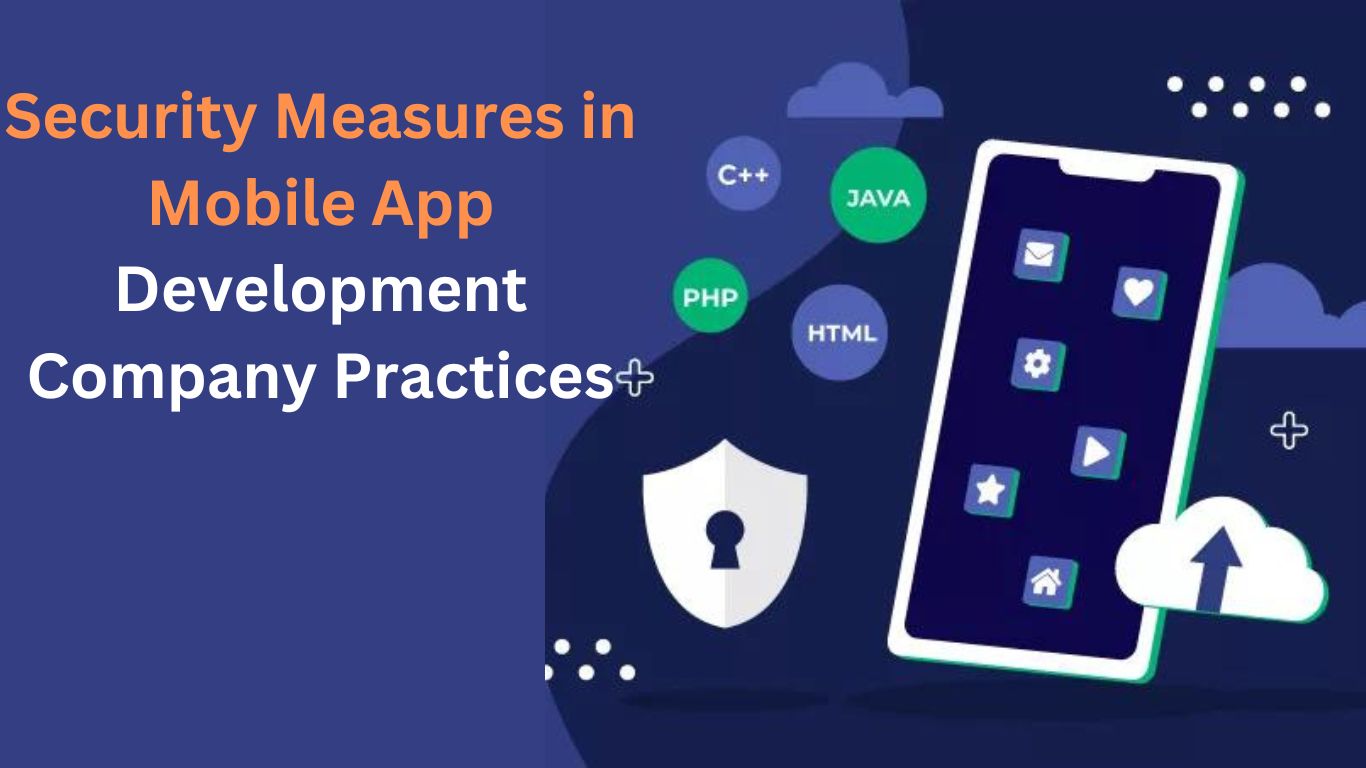Security measures are crucial in mobile app development company practices to safeguard user data and protect against cyber threats. With the increasing prevalence of mobile apps in various aspects of daily life, ensuring the security of these applications has become more critical than ever before. In this article, we will explore the various security measures that mobile app development companies should implement to enhance the security of their products.
Secure Development Lifecycle
Implementing a secure development lifecycle (SDL) is essential to ensure that security is integrated into every phase of app development, from planning to deployment. By incorporating security requirements and best practices into the development process, developers can proactively address security issues and vulnerabilities before they become significant risks.
Regular Security Audits
Conducting regular security audits is another essential aspect of ensuring the security of mobile apps. These audits help identify vulnerabilities and weaknesses in the app’s code, architecture, and infrastructure, allowing developers to address them promptly. By regularly assessing the app’s security posture, development teams can stay ahead of potential threats and ensure that their products remain secure over time.
Use of Encryption
Encrypting sensitive data stored in mobile apps is crucial to protect it from unauthorized access and data breaches. Encryption converts plaintext data into ciphertext, making it unreadable to anyone without the proper decryption key. By implementing strong encryption algorithms and securely managing encryption keys, mobile app developers can ensure that user data remains confidential and secure, even if the app’s backend systems are compromised.
Authentication and Authorization
Implementing strong authentication and authorization mechanisms is essential to control access to sensitive features and data within the app. Authentication verifies the identity of users, while authorization determines what actions they are allowed to perform based on their roles and permissions. By implementing multi-factor authentication, biometric authentication, and role-based access control, mobile app developers can prevent unauthorized access and protect user data from misuse.
Secure Code Practices
Adhering to secure coding practices is critical to prevent common security vulnerabilities such as SQL injection, cross-site scripting (XSS), and insecure deserialization. Secure coding practices include input validation, output encoding, parameterized queries, and proper error handling. By following these best practices, developers can minimize the risk of introducing security flaws into their code and ensure that their apps remain secure against potential attacks.
Continuous Monitoring and Response
Continuous monitoring of app performance and security metrics is essential to detect and respond to security incidents in real-time. By implementing robust logging and monitoring solutions, development teams can identify suspicious activities, anomalous behavior, and potential security breaches as soon as they occur. Prompt response to security incidents can help mitigate their impact and prevent further damage to the app and its users.
Employee Training and Awareness
Providing security training and raising awareness among employees about common security threats and best practices is crucial to mitigate the risk of human error leading to security breaches. Mobile app development companies should educate their employees about the importance of security, teach them how to recognize and report security incidents, and provide them with the tools and resources they need to protect sensitive information effectively.
Compliance with Security Standards
Adhering to industry-standard security frameworks and regulations, such as the OWASP Mobile Top 10 and the General Data Protection Regulation (GDPR), is essential to ensure that mobile apps meet minimum security requirements. Compliance with security standards not only helps protect user data but also demonstrates a commitment to security and trustworthiness, which can enhance the app’s reputation and credibility in the marketplace.
Collaboration with Security Experts
Collaborating with security experts and penetration testers can provide valuable insights into the security posture of mobile apps and help identify and address security flaws before they can be exploited by malicious actors. Security experts can conduct thorough security assessments, penetration tests, and code reviews to identify vulnerabilities and weaknesses in the app’s design and implementation. By working closely with security professionals, mobile app development companies can strengthen their security measures and build more secure and resilient apps.
Conclusion
In conclusion, ensuring the security of mobile apps is paramount for mobile app development companies to protect user data, maintain trust, and mitigate the risk of cyber threats. By implementing robust security measures such as secure development lifecycles, regular security audits, encryption, authentication and authorization, secure code practices, continuous monitoring and response, employee training and awareness, compliance with security standards, and collaboration with security experts, mobile app development companies can create safer and more secure apps for users worldwide.
Frequently Asked Questions (FAQs)
Q1: Why is security important in mobile app development?
Security is essential in mobile app development to safeguard user data, protect against cyber threats, and maintain trust with users. Mobile apps often handle sensitive information such as personal details, financial data, and login credentials, making them attractive targets for hackers and cybercriminals.
Q2: What are some common security threats to mobile apps?
Common security threats to mobile apps include data breaches, malware attacks, insecure data storage, inadequate authentication mechanisms, and insecure communication channels. Hackers may exploit these vulnerabilities to steal sensitive information, manipulate app functionality, or compromise user privacy.
Q3: How can mobile app developers ensure the security of their apps?
Mobile app developers can ensure the security of their apps by following best practices such as implementing secure coding techniques, using encryption to protect data at rest and in transit, implementing strong authentication and authorization mechanisms, conducting regular security audits, and staying informed about emerging threats and vulnerabilities.
Q4: What is a secure development lifecycle (SDL)?
A secure development lifecycle (SDL) is a methodology that integrates security into every phase of the app development process, from initial design and planning to deployment and maintenance. By incorporating security requirements, guidelines, and controls throughout the development lifecycle, developers can proactively address security issues and minimize the risk of security breaches.
Q5: How can users protect themselves from security threats when using mobile apps?
Users can protect themselves from security threats when using mobile apps by practicing good security hygiene, such as keeping their apps and operating systems up to date, using strong and unique passwords, avoiding insecure Wi-Fi networks, being cautious when downloading apps from unknown sources, and using security features such as biometric authentication and device encryption.
Q6: What should mobile app development companies do in the event of a security incident?
In the event of a security incident, mobile app development companies should respond promptly by containing the incident, assessing the impact, mitigating further damage, notifying affected users and stakeholders, conducting a thorough investigation to determine the root cause, and implementing corrective measures to prevent similar incidents from occurring in the future.
Q7: How can mobile app development companies stay ahead of emerging security threats?
Mobile app development companies can stay ahead of emerging security threats by staying informed about the latest security trends and vulnerabilities, participating in industry forums and conferences, collaborating with security experts and researchers, conducting regular security training for employees, and implementing proactive security measures such as threat intelligence monitoring and penetration testing.
Q8: What role does compliance play in mobile app security?
Compliance with security standards and regulations such as the OWASP Mobile Top 10, GDPR, and HIPAA is essential for mobile app development companies to demonstrate their commitment to security and protect user privacy. Compliance helps ensure that apps meet minimum security requirements and adhere to industry best practices, reducing the risk of security breaches and legal liabilities.





